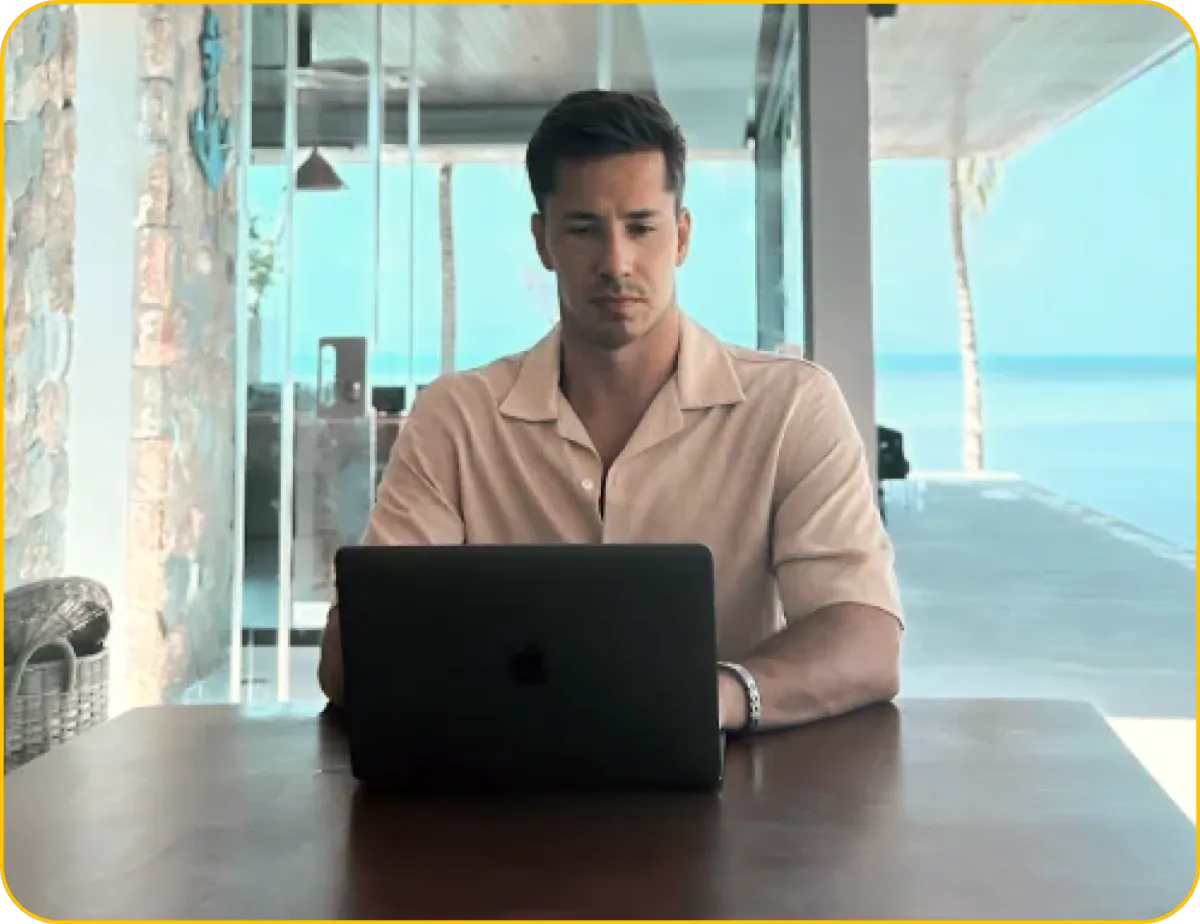

SEO Publishers Are Sleeping on Google Ads – Here’s Why That’s a Goldmine
October 01, 2025 • Nielszee
SEO used to be the golden goose. You put in the work, ranked, and watched the traffic roll in. But those days are gone. Updates like HCU and AI Overviews have turned growth into Russian roulette. One day you’re up, the next day you’re invisible.

SEO used to be the golden goose. You put in the work, ranked, and watched the traffic roll in. But those days are gone. Updates like HCU and AI Overviews have turned growth into Russian roulette. One day you’re up, the next day you’re invisible.

Even with high-quality content, publishers face the same brutal reality: traffic loss, citations without clicks, and conversions cut off at the knees. LLMs happily quote your work, but they don’t send you a single visitor back. You don’t control your business anymore — Google does.
Here’s the uncomfortable truth: Google’s business was never about giving you free traffic. It’s about ads. That’s where their billions come from, and that’s where the future of growth lies.
And yet, too many SEOs keep playing the old game. They buy the course, follow the steps, and when the updates hit, they fold. Their biggest success stays in the past. Stuck in their comfort zones. Unable to handle fragility.
But this game has changed. And if you want to not just survive but thrive, you have to adapt to new rules and new incentives.
That’s why I went all in on Google Ads.
With Ads, you get absolute control:
100% customer acquisition at the bottom of the funnel
Instant feedback and optimization
No waiting for months of “maybe” results
No algorithm updates pulling the rug out from under you
You can either keep clinging to the illusion of “free” traffic, or you can align yourself with the only part of Google that’s built to last. I chose the second path — and it’s changed everything.
Because here’s the bigger picture: Google has no choice but to go all-in on AI. That means the top and middle of the funnel are shrinking fast — eaten alive by AI Overviews and LLMs. What’s left is the bottom of the funnel. And that’s exactly where Google Ads sits.
The closer you are to the money, the safer you are.

Why Google Ads is my Goldmine?
Algorithm updates are a blackbox where the next change is really anyone's wild guess. Therefore, certainty is the ultimate competitive advantage.
Algorithm updates are a blackbox where the next change is really anyone's wild guess. Therefore, certainty is the ultimate competitive advantage.


I like the model, because I can unapologetically focus on the bottom of the funnel. All I do is create content for keywords that bring money into my pocket. No topical authority, no linkbuilding, no EEAT, no social signals. None of that stuff to trick an algorithm.
Because I don’t spend money on a lot of tests I only spend money on things that I’ll know tomorrow if it made me money or not. This gives me full control of my spend and the ability to scale faster.
What you can make with SEO, you can make with Google Ads. I went to a lot of SEO and PPC conferences. And in the PPC conferences, the revenue numbers talked about are always higher. You’re simply aligned with the platforms. Google, Meta and TikTok are businesses, not charities.
And because I’m aligned with the platform, there are no sudden revenue or traffic losses. Why would Google cut all my traffic and spend? They’ll just shoot themselves in the foot. I haven’t had any major traffic losses anymore.

Why SEOs are Sleeping On Google Ads
For two years I’ve been preaching to friends that Google Ads is making me a fortune, and they should get into it too. But I keep hearing the same excuses:
1. I’m too busy (recovering all my SEO traffic)
2. I don’t know how to do Google Ads
3. It costs a lot of money
4. I don’t want to risk spending too much
5. SEO and PPC compete
That’s why I started AffRamp. To solve this without giving any risk to the publishers. I know this model works and that’s why I only want to get paid for results.
If you’ve made €25K at some point in your affiliate journey, you already have what’s needed: the content, the rankings, the team. With Google Ads, we can replicate and scale that revenue again, because we’re bidding on the same money keywords your content already targets. The ceiling you once hit isn’t the end, it’s the foundation for an even higher ceiling. And if you read this far, you now know exactly how far it can go.
We replaced more than our SEO traffic with SEO. That’s why we only work with people who earn or have earned €25.000 a month, because we know we can match that with Google Ads as well.
If you’re ready to reach the next level of your business and reclaim the revenue you thought was gone or just want to have a relevant business in two years time, I fully believe this is the path forward.
Not only will you profit from Google Ads when working together, the higher commissions, new systems and revenue diversification, will make you feel a lot better about the future as well.
Comfort zones feel safe, but they’re dangerous in fast-changing industries. Clinging to SEO because it’s familiar is like refusing to leave a sinking ship because you already know the layout of the cabins.
Let’s dive into each argument (or excuse to stay in a comfort zone) one by one.
#1 You’re too busy.
Great, that’s exactly why I founded AffRamp, so we can do it for you.
I do recommend taking the time for it, since it can grow bigger than SEO. However, if you just want the easiest version. Get affiliate tracking software and start with a list of URLs in a DSA campaign. Then you know if you have a chance or not already.
#2 You don’t know how to do Google Ads
There are intricacies. Or past mistakes to be made. You can read that in my case study. However, starting is easy: you can already do that by adding a campaign for your most successful URLs and add exact match keywords or a DSA. In combination with affiliate tracking software. For the real profits thereafter, you can use us.
#3 It’s too complex
There are some intricacies around campaign strategy (consolidated vs single ad group campaigns), exact vs. broad keyword match types, PMAX, DSA and Search Native, yes. There needs to be a solid strategy in place to run it. It does get easier over time, because Google is letting AI do the heavy lifting like with PMAX.
However, if you are an SEO expert and know about semantic SEO, linkbuilding, information gain, EEAT, topical authority, indexation, etc. Google Ads is way easier.
#4 It costs a lot of money
I never got this argument, cause every piece of content, link, website development project costs money. SEO is only ‘free’ if you make your own site, do your own linkbuilding and write all the content and don’t value your single time at all. With Ads, you do spend money upfront. And I do recommend to start with at least a budget of $5.000. However, if you already have a lot of legacy, optimized pages and good commission deals (that’s why we only work with big publishers and not beginner ones) I’ve seen enough cases where it’s profitable from month one. Next to that, when you know how you earn per visitor on average, you can set that as your starting manual CPC bid and you’ll easily prevent significant losses. Thanks to quick feedback, budgets, spend alerts, the money you spend is very controllable. And if you’re not profitable after month one, it’s often because pages aren’t optimized enough and you’ll be profitable after. Both SEO & Google Ads cost money. In the end, they can run together and make sure you capture a bigger piece of the market. However, some people think it’s and either/or question.
#5 SEO and Google Ads compete
Yes, that’s correct if (and only if) you already rank #1 or #2 for that keyword. I myself have had cases where my SEO page was ranking #1 and after also putting a Google ad, our organic position went down to #3. This was because the CTR of the #1 page dropped because people clicked our ad instead of our organic search results. That’s why I advise everybody to not bid on keywords you’re ranking #1 and #2 for. If that’s not the case, adding ads for that keyword will be a net positive. All big media companies are leveraging both SEO & Google Ads to capture a bigger piece of the pie and so should you.

Extra Advantages of Paid Traffic for Affiliates
Higher commissions
More traffic = earning more commissions for your partners = more leverage. You can use this to demand higher commissions.
Sometimes, when you’re almost profitable for a certain page/topic, it even forces you to reach out to one of your partners and say:
“Hey Sarah,
I really appreciate our collaboration and I know my visitors get massive value from your products. However, since I’m doing a PPC model, at this point, I’m only breaking even.
Would you be able to give me a commission bump from 10 to 15%? This would make my efforts worthwhile. Otherwise, I would have to stop my efforts and I wouldn’t be able to contribute to your revenue numbers anymore (something I’d like to continue to do if you’d be willing to jump up in commissions slightly!)
Best,
Niels”
Google Ads is different, you need to tell your partners directly so they understand what’s needed in order for this to be a win-win for the long haul.
Diversification
This doesn’t just make you sleep better. It also improves the multiple and sellability of your business. Barely anyone wants to buy a business anymore reliant on one channel alone.
Many companies are interested in my business, because we cracked Google Ads and they want to have that knowledge and crack it as well for their SEO portfolio.

Stop Sleeping, Start Earning
The publishers who adapt now will own the next years. The ones who don’t will keep fighting algorithm updates until their margins vanish.
If you want to see if Google Ads is viable for your business, apply to our cohort. We only take on 3 clients at a time and vet every client and see what the upside is, competition is and how viable it would be to run Google Ads so we only work with cases we certainly know will be a success.

It doesn’t matter if you used to make a lot of money via SEO or still do, past success is an indicator of future success in this case. Google Ads is an opportunity many people aren’t utilizing and know the intricacies of the platform. Apply now and I’ll get back to you about the viability of your website.

© Niels Zee 2025 all rights reserved